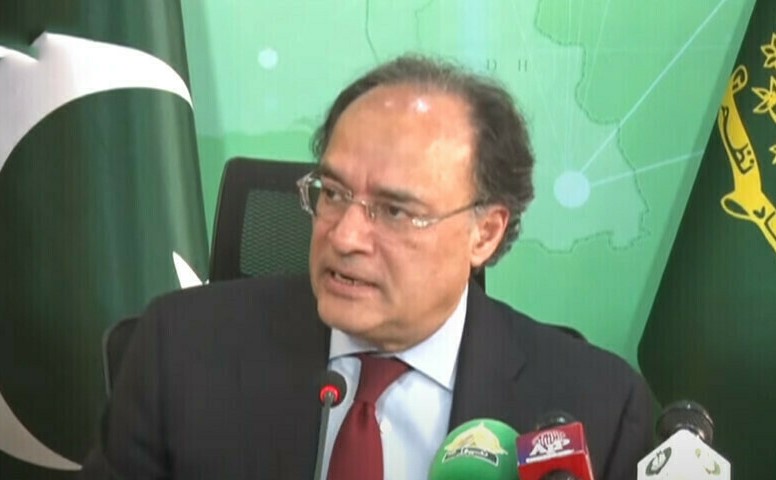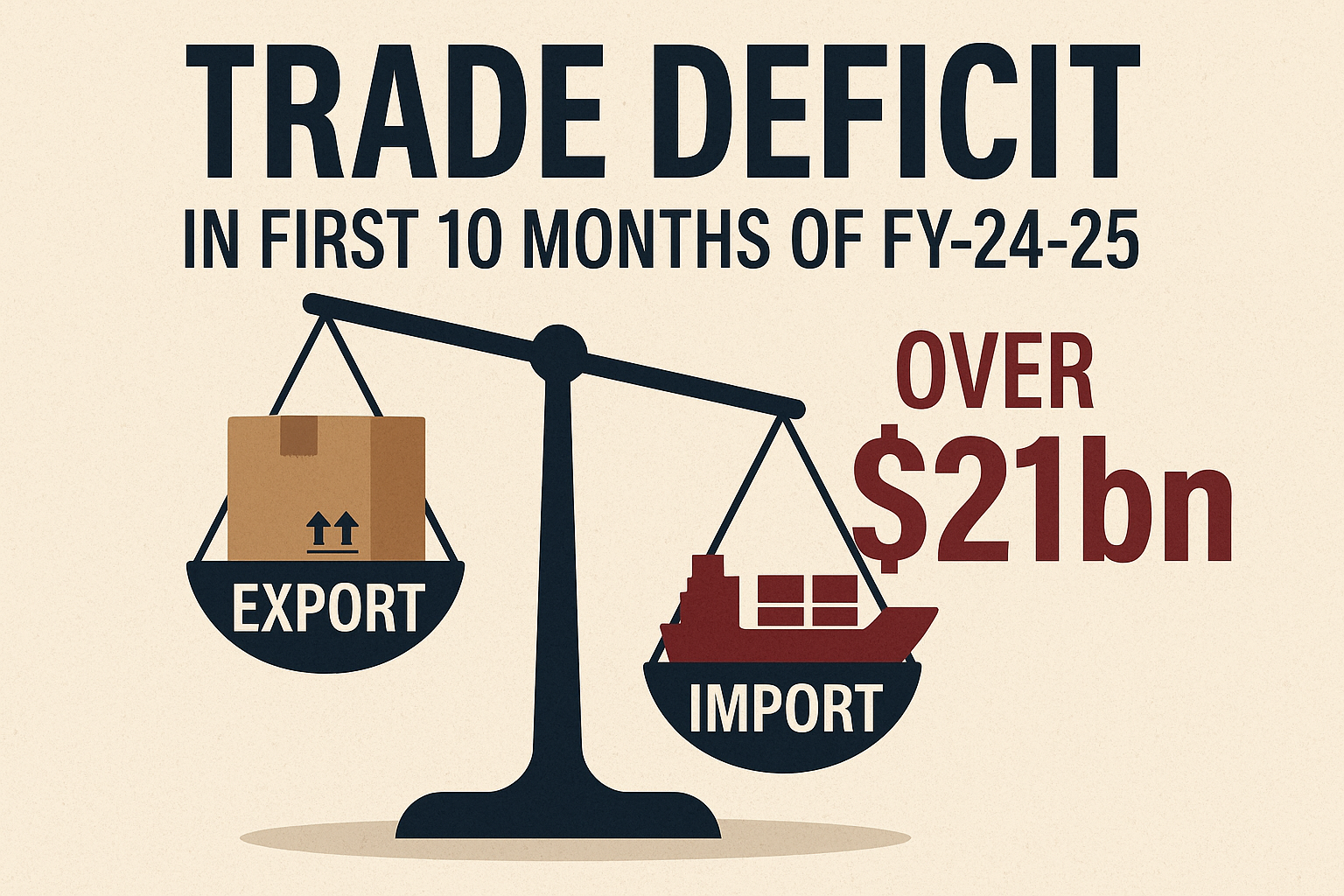
Finance Minister Muhammad Aurangzeb has announced that the government is moving towards reducing its expenditures. He stated that 60% of vacant positions in federal ministries and departments, which had not yet been filled, have been eliminated. This equates to approximately 150,000 positions that will no longer be filled.
While addressing a press conference in Islamabad, the finance minister said efforts are underway to steer the economy towards sustainable growth. Structural reforms in the tax system have been ongoing since December, and the private sector must play its role in economic development.
He further stated that the number of institutions under federal ministries has been reduced from 80 to 40, effectively halving them. Some institutions have been merged, and it has also been decided to merge two ministries.
In the next phase, 25 of the 60 sub-departments under the Ministries of Science and Technology, Commerce Division, Housing and Works, and National Food Security will be closed, 20 will be downsized, and 9 will be merged.
The finance minister added that service-related positions are being outsourced, and the government aims to improve the efficiency of public institutions through “right-sizing.”
He emphasized that the government’s role is to formulate policies, while job creation is the responsibility of the private sector, which must take the lead in supporting the national economy.
Muhammad Aurangzeb stated, “Thank God, the economy is on the path to improvement. Targets are moving in the right direction, and we are working towards reducing government expenditures. This is a significant step toward the federal government’s right-sizing initiative.”
He explained that people often ask why the government takes so much tax and where the money is being spent. They also question why the government does not reduce its expenses. “This is a valid question,” he said, adding that a high-powered committee headed by him was formed by the Prime Minister to address these concerns.
The committee, which includes representatives from the government, coalition parties, civil servants, and the business community, has finalized its Terms of Reference (ToRs), with the primary objective being the reduction of government expenditures. He emphasized that public funds must be spent prudently, and government spending must be minimized.
He also highlighted discussions about whether this initiative should be carried out by the federal government or, after the 18th Amendment, delegated to the provinces or the private sector.
He revealed that the federal government oversees 43 ministries and their 400 subsidiary institutions, with expenditures totaling Rs. 900 billion. Work is ongoing to determine how these costs can be reduced, and steps have already been taken to save public money.
Aurangzeb outlined a phased approach to reducing expenditures. Instead of addressing all 43 ministries at once, five to six ministries are being selected at a time for review and cost-cutting measures.
During the review process, the ministers, secretaries, heads of subsidiary institutions, and relevant officials from the first six ministries were invited to provide their input on cost reduction strategies. This was followed by similar meetings with four more ministries, and discussions are ongoing with five additional ministries in the current phase.
Prime Minister himself is overseeing the entire process, which includes evaluating the resources and workforce of these institutions. In the past six months, the decision to eliminate 60% of vacant positions, amounting to approximately 150,000 posts, has been implemented. The ministers and secretaries will now provide updates on the implementation progress during their briefings.
He also noted that the right-sizing process for all ministries will be completed by June 2025, before the end of the current fiscal year. The impact of these decisions will become evident in the next financial year. The focus will remain on further reducing expenses and enhancing institutional performance.
In response to journalists’ questions, the finance minister stated that no ministry has been excluded from the right-sizing process. Sensitive matters related to state-owned enterprises (SOEs) are also being addressed, with decisions based on their performance and efficiency. He mentioned that over 95% of the committee’s decisions are made with consensus.
Aurangzeb underscored that the 18th Amendment aimed to transfer departments and institutions to the provinces, along with their authority and resources. He expressed hope that this constitutional process would be completed, allowing provinces to manage these institutions independently.
PML-N Member of the National Assembly Bilal Azhar Kayani commented that the elimination of 150,000 positions was carried out with great care, after gathering detailed information from each ministry. As employees retire, their services will be outsourced. He also acknowledged the media’s role in highlighting the need for government downsizing and expense reduction.
Kayani added that the objective of right-sizing is not just to cut expenses but also to improve government efficiency. The government aims to facilitate the business community by reducing the need to obtain No Objection Certificates (NOCs) from multiple institutions, thereby simplifying processes.
 BeNewz
BeNewz




